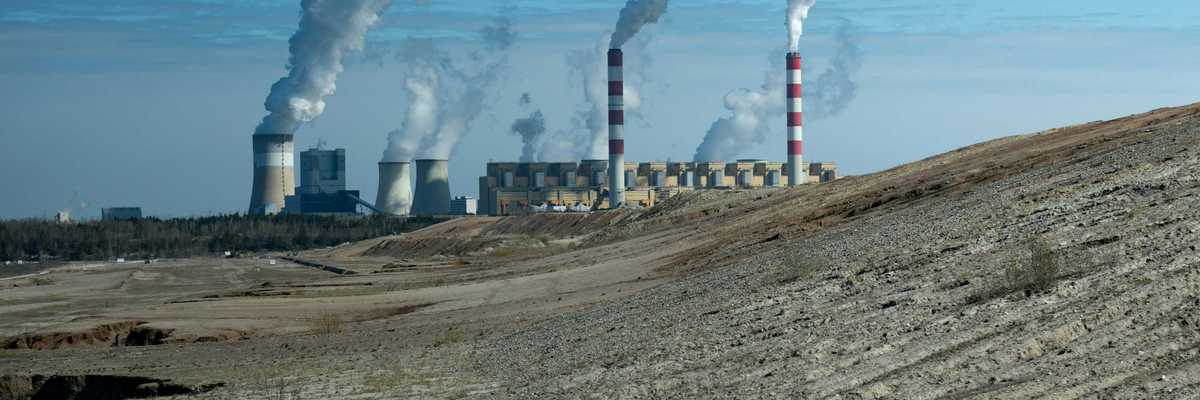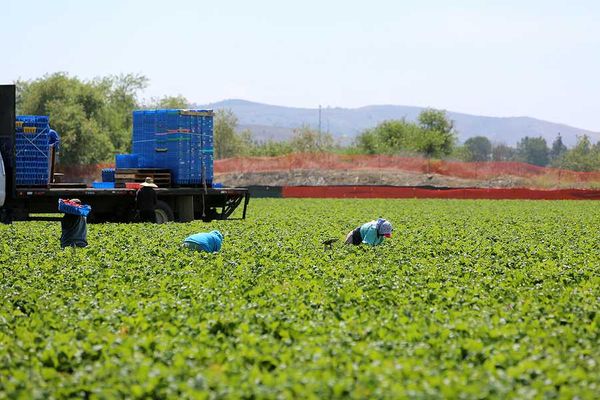pesticides
Trump’s EPA focus: Delay, rescind, dismantle environmental and health protections
For the first time in the agency’s 55-year history, Congress has ceded its responsibility to oversee the EPA to a single politician who sanctioned its “wholesale demolition,” former staff charge.
Opinion: California farmworkers face dual threats from extreme heat, pesticide exposure
As California’s summers grow hotter, farmworkers are enduring the twin dangers of extreme heat and pesticide exposure—conditions that current regulations fail to address in combination.
How an Illinois farmer turned flooded farmland into rice paddies
One Illinois man’s decades long fight to convert his fields into rice paddies demonstrates how it’s possible to bring diversity to the Corn Belt, but improbable so long as federal farm policy remains focused on soybeans and corn.
Big food brands are falling short on their regenerative agriculture promises
A new report finds that many of the world’s largest food companies are missing the mark on regenerative agriculture, offering little more than buzzwords while continuing to support unsustainable farming practices.
In short:
- Most major food companies received a “D” grade for failing to adequately support farming that improves soil health, reduces pollution, and cuts chemical use.
- While some companies like PepsiCo and Lamb Weston lead the pack with clearer goals and data collection, most offer vague programs without requiring meaningful action from their suppliers.
- The report warns that loosely defined “regenerative” programs risk becoming greenwashing unless companies enforce clear standards and stop relying on harmful practices like excessive pesticide use.
Key quote:
“Engaging in a full range of regenerative practices is essential to improving soil health, biodiversity, farm resilience, and other outcomes. Companies requiring two or fewer practices as part of their regenerative programs … may fail to regenerate healthy soils and be at risk for greenwashing claims.”
— report from the nonprofit group, As You Sow
Why this matters:
Industrial farming practices directly affect human health through pesticide exposure, polluted water, and degraded food quality. This report makes it clear that major food giants are not doing nearly enough to help farmers shift to practices that build soil, cut pollution, and reduce pesticide dependence. As long as “regenerative” remains a vague feel-good term without real standards, it risks becoming yet another greenwashing label slapped on business as usual.
Read more: As regenerative agriculture gains momentum, report warns of “greenwashing”
Climate change is emptying forests of insects, even in places we thought were safe
Insects are vanishing from even the most protected ecosystems on Earth, and scientists say climate change is now the main culprit.
In short:
- Long-term research in Costa Rica shows insect populations collapsing in pristine forests, once thought to be safe from pesticides and human development.
- Entomologists worldwide are reporting dramatic drops in moths, beetles, and other bugs — especially in regions affected by longer dry seasons and rising heat.
- The loss of insects is triggering food chain collapses, with bird, bat, and lizard populations also crashing in otherwise untouched areas.
Key quote:
“We’re talking about nearly half the tree of life disappearing in one human lifetime. That is absolutely catastrophic.”
— David Wagner, entomologist
Why this matters:
Deep in Costa Rica’s forests, decades of data now reveal a terrible silence: moths, beetles, ants, and the whole chorus of six-legged life are fading away. It’s the heat, drying the forest from the bottom up. Insects are the foundation of ecosystems, and their crash threatens food webs, biodiversity, and even human survival. Half of all known species are insects. They pollinate crops, aerate soil, and feed nearly everything. Combined with the threats insects face globally from pollution and development, the warming climate creates grave risks for these small but mighty creatures on which so many of our human systems depend.
Read more: Silent Earth: Averting the insect apocalypse
Pollinators face growing threats from war, pollution and synthetic chemicals
A surge in global conflict, plastic contamination, and chemical exposure is putting bees and other pollinators at increased risk, a new report warns.
In short:
- A University of Reading report lists 12 emerging threats to pollinators, including war, microplastics, artificial light, and antibiotics entering ecosystems via agriculture.
- Microplastics were detected in most of the 315 bee colonies tested across Europe, while light pollution has cut nocturnal flower visits by 62%, and pesticide mixtures continue to harm pollinator health.
- The authors urge policy reforms and habitat improvements to mitigate the risks, noting that both public and private efforts are essential to safeguarding pollinators.
Key quote:
"Pollinators are central to our food systems, climate resilience and economic security. Protecting pollinators means protecting ourselves."
— Simon Potts, professor at University of Reading and lead author of the report
Why this matters:
Pollinator populations are collapsing under pressure from a widening range of human-made threats. Wars disrupt land use and reduce crop diversity, depriving pollinators of seasonal food. Light pollution scrambles their natural behavior. Microplastics, which now pervade soils and even beehives, may carry toxic additives or interfere with insect development. And even as individual pesticides are regulated, their combined effects — so-called “cocktails” — pose unmeasured risks. Antibiotic residues, often used in livestock and crop production, are now showing up in bees and affecting their behavior. As natural pollination declines, farmers turn to costly manual labor or imported bees, creating economic ripple effects.
Read more: Pesticides are becoming increasingly toxic for the world's most important insects
Most North American bird species are declining as once-safe habitats falter
Bird populations across North America are plummeting, with three-quarters of species in decline even in their most stable habitats, according to a new study.
In short:
- A comprehensive study found that 75% of North America’s bird species declined between 2007 and 2021, including many that were once abundant.
- Habitat loss from farming, coastal development, climate change, and pesticide use are driving declines, even in previously safe areas.
- While overall trends are bleak, some localized bird populations are stable or growing, offering insight for future conservation efforts.
Key quote:
“Those locations where species were once thriving, and where the environment and habitat was once really suitable for them, are now the places where they’re suffering the most.”
— Alison Johnston, ecological statistician, University of St. Andrews and lead researcher of the study
Why this matters:
Birds serve as vital indicators of environmental health. Their decline reflects the widespread degradation of ecosystems that also support human life. As habitats vanish under the pressures of agriculture, urban development, and climate change, the intricate balance sustaining both wildlife and people unravels. The rollback of environmental protections—such as those under the Migratory Bird Treaty Act—further threatens species survival. The weakening health of bird populations often parallels human environmental challenges, like worsening air quality and the spread of contaminants. Understanding and addressing these complex, interconnected threats is essential to protecting both wildlife and the human communities that share their habitats.
Related coverage:












